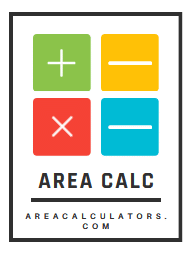You might think your boiler is working hard — but is it working smart?
That’s where the Boiler Efficiency Calculator comes in. It helps you figure out how much of your fuel actually turns into useful heat. The rest? Lost in exhaust, unburned fuel, or system leaks.
Whether you’re managing a home, running a plant, or optimizing a heating system, knowing your boiler’s efficiency helps you cut costs and improve performance.
What Is Boiler Efficiency and Why It Matters?
Boiler efficiency tells you how effectively your boiler converts the energy from fuel into usable heat for your home or facility. It’s expressed as a percentage.
Why it matters:
-
🔥 Lower fuel costs – more heat with less fuel
-
🌍 Reduced emissions – burn cleaner, waste less
-
🛠️ System monitoring – catch performance drops early
-
🧮 Better energy planning – know what to expect from your boiler
In short, efficiency equals savings — and smarter operation.
Formula and Variables
There are two common methods. We’ll use the Input-Output method, which is simpler and widely used:
🧮 Boiler Efficiency (%) = (Output Heat ÷ Input Fuel Energy) × 100
Contents
📊 Variable Table
| Variable | Meaning |
|---|---|
| Output Heat | Useful heat energy produced (in BTU, kW, etc.) |
| Input Fuel Energy | Total energy from fuel burned (in same unit) |
| Efficiency (%) | Boiler performance as a percentage |
📌 Units must match. Use BTU with BTU, or kW with kW.
Example: Calculating Boiler Efficiency
Suppose your boiler delivers 85,000 BTU of heat output from 100,000 BTU of fuel input.
Apply the formula:
Efficiency = (85,000 ÷ 100,000) × 100 = 85%
That means 85% of the fuel’s energy becomes heat — and 15% is lost.
How to Use the Calculator
-
Enter the heat output
(how much heat your system produces) -
Enter the fuel input
(total energy burned during operation) -
Click calculate
You’ll get the efficiency percentage instantly.
Simple, fast, and accurate.
Where This Calculator Is Used
🏠 Home heating systems – check if your furnace is performing
🏭 Industrial boilers – monitor plant energy efficiency
🔥 Commercial heating – audit HVAC systems
🧪 Lab testing – validate boiler performance
🧾 Energy audits – optimize costs and reduce carbon footprint
🔧 Maintenance teams – detect inefficiencies over time
From small buildings to large factories, this tool helps track energy use.
Tips for Accurate Results
✅ Measure input and output in the same unit (BTU, kW)
✅ Use consistent time periods (e.g., per hour or per cycle)
✅ Clean your boiler before testing
✅ Consider averaging results over a week
✅ Check specs for rated input if not metered
Small errors in data = big errors in efficiency.
Common Mistakes to Avoid
❌ Using output and input from different time frames
❌ Mixing units like BTU and kW without conversion
❌ Ignoring fuel quality or system leaks
❌ Using manufacturer ratings instead of real readings
❌ Not accounting for standby losses in systems
Measure what matters — and measure it right.
FAQs:
1. What’s a good efficiency for a boiler?
Typical modern boilers range from 80%–95%. Condensing boilers can exceed 90%.
2. Can this calculator be used for gas and oil boilers?
Yes. Just make sure your input and output are in the same energy unit.
3. What unit should I use?
BTU or kW — whichever matches your fuel and heat measurement. Keep them consistent.
4. How do I measure output heat?
Use a heat meter, or calculate based on flow rate and temperature difference in the heating circuit.
5. Does boiler age affect efficiency?
Yes. Older units often lose efficiency due to wear, soot buildup, or outdated design.
6. Can this help reduce energy bills?
Absolutely. By identifying inefficiencies, you can tune or upgrade systems to cut fuel usage.
Conclusion:
The Boiler Efficiency Calculator gives you insight into how well your heating system performs. In homes and industries alike, knowing your efficiency means you can stop guessing — and start optimizing.
So take the guesswork out of your boiler. Punch in the numbers, check the result, and fire up smarter heating today.
